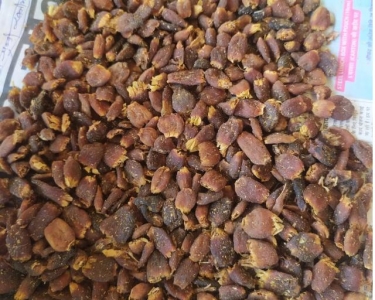Live animals
Couldn't find the product you want?
Fill out this form to request the product.
Products You May Like
Export from Saint Kitts and Nevis
Saint Kitts and Nevis is a twin-island federation whose economy is characterized by its dominant tourism, agriculture and light manufacturing industries.
Former sugar plantations (closed in 2004) dominate the St. Kitts landscape. Many of the cane fields are being burned to make room for land development, especially on the northern side of the island, in the parishes of Saint John Capisterre and Christchurch. The agricultural, tourism, export-oriented manufacturing, and offshore-banking sectors are being developed and are now taking larger roles in the Saint Kitts' economy. The growth of the tourism sector has become the main foreign exchange earner for Saint Kitts and Nevis. The country has also developed a successful apparel assembly industry and one of the largest electronics assembly industries in the Caribbean.
St. Kitts is dependent upon tourism to drive its economy. As tourism grows, the demand for vacation property increases in conjunction. In hopes of expanding tourism, St. Kitts hosts its annual St. Kitts Music Festival.
Of the islands' total land area, about 39% is devoted to crops. The principal agricultural product of St. Kitts is sugarcane; peanuts are now the second crop. On Nevis, sea island cotton and coconuts are the major commodities. Sweet potatoes, onions, tomatoes, cabbages, carrots, and breadfruit are grown for local consumption on both islands, mostly by individual smallholders. Some exports of fish (primarily lobsters) are made to the Netherlands Antilles and Puerto Rico; fisheries exports totaled US$245,000 in 2000. Fish is caught by traditional methods such as beach-seining, pot and trap fishing & hand-lining. But large quantities of dried, salted and smoked fish, as well as frozen are imported from Canada and USA.
Main exports of Saint Kitts and Nevis are broadcasting equipment, electric motor parts, scrap vessels, non-fillet frozen fish, beer, other engines, flavored water, other measuring instruments, low-voltage protection equipment, passenger and cargo ships.
Main export partners of Saint Kitts and Nevis are United States, Germany, Canada, Turkey, Ghana, Antigua and Barbuda, Dominica, Albania.
Import to Saint Kitts and Nevis
The economy of Saint Kitts and Nevis has traditionally depended on the growing and processing of sugar cane; decreasing world prices have hurt the industry in recent years. Saint Kitts and Nevis imports most of its food supplies. The government has undertaken a program designed to revitalize the faltering sugar sector. It is also working to improve revenue collection in order to better fund social programs. In 1997, some leaders in Nevis were urging separation from Saint Kitts on the basis that Nevis was paying far more in taxes than it was receiving in government services, but the vote on cessation failed in August 1998. In 1998, a strong hurricane caused approximately $445 million in damages and limited GDP growth for the year.
St. Kitts and Nevis is a member of the Eastern Caribbean Currency Union (ECCU) The Eastern Caribbean Central Bank (ECCB) issues a common currency (the East Caribbean dollar) for all members of the ECCU. The ECCB also manages monetary policy, and regulates and supervises commercial banking activities in its member countries. There is an extensive parallel economy denominated in US$, which is the de facto currency for many business transactions. St. Kitts is a member of the Eastern Caribbean Telecommunications (ECTEL) authority, which is developing the regulations to liberalize the telecommunications sector in the region by 2004.
Main imports of Saint Kitts and Nevis are passenger and cargo ships, postage stamps, poultry meat, cars, refined petroleum, pharmaceuticals, large construction vehicles, hard liquor, broadcasting equipment.
Main import partners of Saint Kitts and Nevis are United States, Italy, Germany, United Kingdom, Turkey, Dominica, Netherlands, Barbados.
Check Out Export Portal: A Site That Lets You Export Live Animals
If you are looking to buy and export animals, then you came to the right place! Export Portal's Live Animals Department is an online marketplace for sellers and buyers of any livestock. We work to contribute to the live export industry, which brings many economic advantages and other benefits to countries that rely heavily on livestock imports. In fact, in just Australia alone, this industry contributes roughly $1.8 billion to the country's GDP each year. Moreover, it also ensures food security while helping people meet their protein needs as well.
Finding the Right Animal
We feature a wide range of pigs, cows, sheep, goats, horses, rabbits and hares, turkeys, bees, and fish for sale. An increasing number of American, Australian, German, South African, Argentinian, and Italian farmers and companies are advertising their livestock with Export Portal, portraying just how effective and helpful our site is.
To help customers make more informed purchasing decisions, our site lets users narrow down their searches by the age, breed, and sex of the animal. If you are feeling hesitant to shop on our site and want more detailed information, make sure to check out our seller ratings and reviews, which are written by our buyers and customers. We also collaborate with hundreds of trusted international shipping companies that arrange the transport of all kinds of animals and birds to any country in the world.
Online Shopping is More Simple with Export Portal
Export Portal is an ideal site for everyone who is an avid online shopper. Our convenient options make it easy to find and buy whatever you are looking for. Our seller network from all over the world has everything you need, and our customer support team will make sure you can find it. Our wide assortment of products will be sure to provide you with the best shopping experience. Make sure to check out our site and items today!
Customs requirements of Saint Kitts and Nevis
Saint Kitts and Nevis Customs Contacts:
Website: http://www.skncustoms.com/Index.aspx
E-mail: skbcusexcise@sisterisles.kn , officecomptroller@skncustoms.com
Address: Customs and Excise Department, P.O. Box 1, Bird Rock, Basseterre, St. Kitts
Telephone: (869) 466-7227, (869) 466-7228
Fax: (869) 465-8519
Saint Kitts and Nevis is a two-island country situated in the West Indies. It is the smallest sovereign state in the Americas, in both area and population. The country's nearest neighbours are the islands of Sint Eustatius, Saba, Saint Barthélemy, Saint-Martin, Anguilla, Antigua and Barbuda. Saint Kitts and Nevis is a member of the Commonwealth of Nations, World Bank, International Monetary Fund, Organization of American States, Organization of Eastern Caribbean States and the Caribbean Community and Common Market (CARICOM).
Importing
Entry (Declaration) Processing:
- A Customs entry or declaration is required for all consignments imported into St. Kitts/Nevis.
- Customs entries can be submitted electronically but in addition at least three hard copies
of the entry forms (C100) must be presented with the relevant invoices, air waybill /bill of
lading and other supporting documents attached.
- An importer may also be required to submit an Importer’s Declaration Form if the invoice is
unsigned or deemed insufficient by Customs.
- A Bill of Sight may also be used in instances where invoices are unavailable and the
Comptroller permits the goods to be inspected and valued for duty purposes.
- The hard copies of the customs entries must be taken to the Supply Office for processing
and approval before being lodged at Customs. The entries are stamped as evidence of
compliance.
- At the time of first presentation of the entry to Customs the importer or authorised
Customs broker must sign the Lodgement Register.
- The verification of the Customs entry involves comparing the electronic declaration with
the paper declaration to ensure that the items are properly classified, the value for duty
purposes is correct, the relevant duties and taxes are accurately computed and that all
other regulatory requirements are complied with.
- Any discrepancies observed during the verification process are queried and the entry
returned to the importer or broker for correction. The queried entry is accompanied by a
Query Form which explains the discrepancy to the importer.
- After adjusting the Customs entry the importer or broker returns the corrected document
to the Long Room and makes a notation on the Query Form to indicate the action taken to
adjust the entry.
- The entry is finalised by Customs and an Assessment Notice is generated with the details of
the Customs duty to be paid.
Commercial imports
- In the case of commercial goods the importer is required to present a proper Customs
entry (declaration) in respect of the goods.
- The declaration is verified by Customs and then the importer must pay the Customs duty
due on the goods.
- The contents of the parcels may also be inspected by Customs prior to being released.
- The importer or broker required to sign a “Receipt for the Released Goods Form” which is
retained by Customs.
Export Procedures
Preparing documents:
- An exporter will determine the carrier to be used for shipping goods to destination.
- An export declaration must be prepared with particulars of the goods and supporting
documentation.
- The air waybill /bill of lading must be prepared by the agent prior to departure of the
aircraft/vessel.
Declaration Processing
- The export declaration (entry) is presented electronically or physically taken to the Customs
office where the goods are to be exported for processing.
- The declaration is verified and finalised.
- The finalised document must then be taken to the Customs Cashier for “Stamping Out”.
- Any Port charges are paid to the Port Cashier who issues a receipt.
- The documentation is taken to the Warehousing Officer for record keeping and filing.
Source:
http://www.skncustoms.com/pdfs/SKB%20Import%20Procedures%20%20Final.pdf





